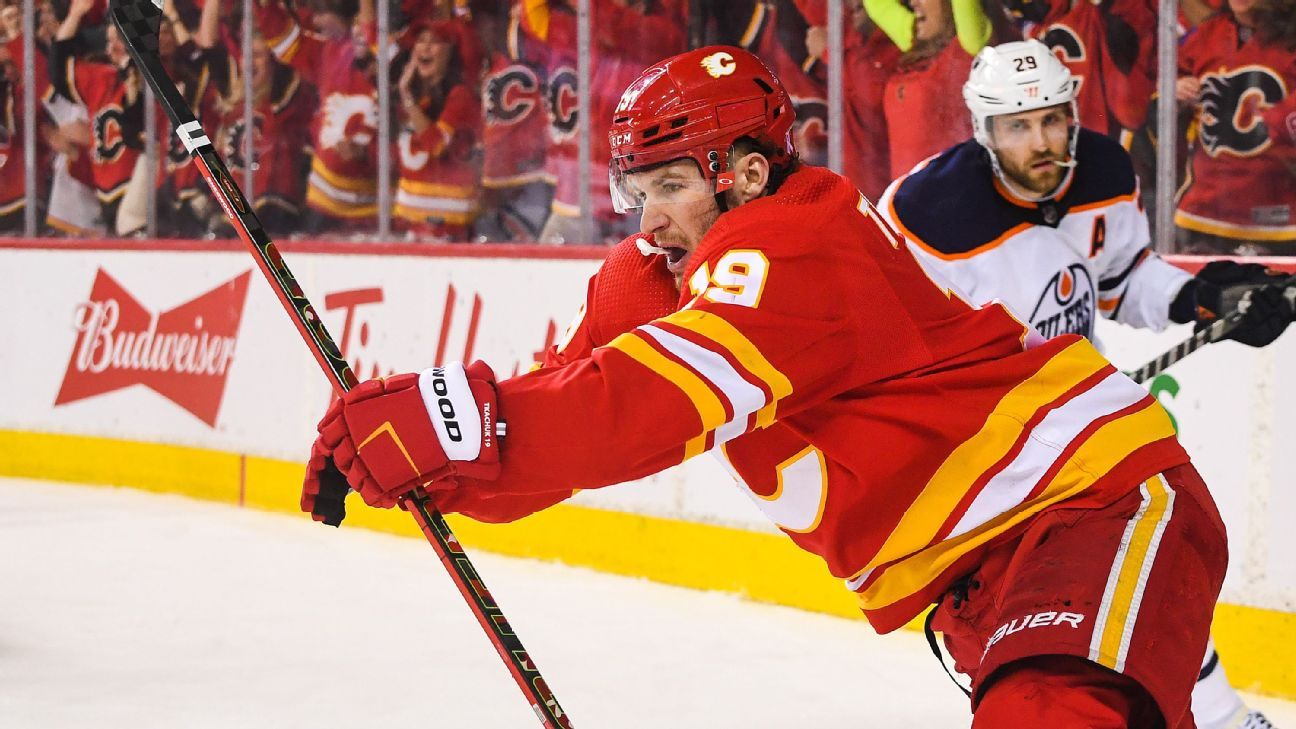
While other NHL general managers are finding serenity in the offseason, Calgary Flames GM Brad Treliving has watched the foundation of his championship-caliber roster crumble into dust.
Top scorer Johnny Gaudreau left as a free agent, signing with the Columbus Blue Jackets, citing family considerations that superseded the Flames' best efforts to retain the winger. Now it's Matthew Tkachuk, the team's second-leading scorer (104 points last season), who's poised to leave.
Tkachuk informed Treliving that he would not seek a long-term contract to keep him in Calgary beyond the 2022-23 season, his last before unrestricted free agency. The team filed for arbitration on Monday with the restricted free agent, removing the possibility of an offer sheet from another team. The expectation around the NHL is that they'll trade the 24-year-old star before the arbitration hearing takes place, as early as Wednesday.
There are two major complications in trying to complete a trade for Tkachuk from a Flames' perspective:
1. Where does he want to sign long-term? There's a major difference in trade returns for players that are rentals and that are signed to long-term extensions. For example, the flights of fancy around what the Chicago Blackhawks could get for trading Alex DeBrincat were based on him going somewhere and agreeing to a long-term extension. Instead, the Ottawa Senators acquired him for a first-, second- and fourth-round pick for what could be two seasons of service; DeBrincat can walk as an unrestricted free agent after that.
In Tkachuk's case, he's one year away from unrestricted free agency. Clearly, it would benefit the Flames to deal him to a team where he would sign a long-term extension, maximizing the return for Calgary. They have to get this right, especially after Gaudreau left for nothing -- through no fault of their own, mind you, as Treliving legitimately believed he had a chance to keep Gaudreau until the winger informed him otherwise on the cusp of the free-agent marketing opening.















 Phone: (800) 737. 6040
Phone: (800) 737. 6040 Fax: (800) 825 5558
Fax: (800) 825 5558 Website:
Website:  Email:
Email: 






